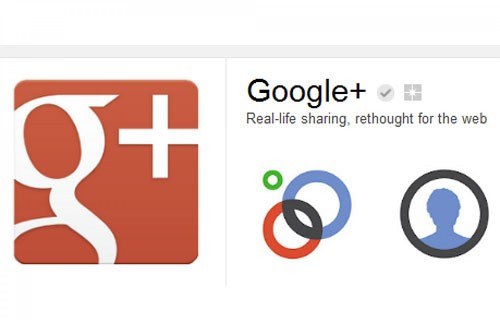James Whittaker: Former Google Employee Says Google Plus Is A Failure, ‘Threatened’ By Facebook

Goldman Sachs isn't the only company with disgruntled employees who publish rants about the corporate climate.
James Whittaker, former Google employee, spouted off in a blog post on Tuesday entitled Why I Left Google, saying its social media efforts with Google +, for which he was the head of the engineering team, have been a failure threatened by competition with Facebook.
A user exodus from Facebook never materialized, Whitter wrote. I couldn't even get my own teenage daughter to look at Google+ twice, 'social isn't a product,' she told me after I gave her a demo, 'social is people and the people are on Facebook.'
Whittaker said it was hard to imagine a better place to work before the company increased its efforts to expand into social media.
My last three months working for Google was a whirlwind of desperation, Whittaker wrote, adding there was two eras of Google: Before Google+ and After.
According to Whittaker, the before era was run like an innovation factory while the after era was predominately Google competing with Facebook, the social media giant, with less innovation.
The Google I was passionate about was a technology company that empowered its employees to innovate. The Google I left was an advertising company with a single corporate-mandated focus, he wrote. In fact, my last three months working for Google was a whirlwind of desperation, trying in vain to get my passion back.
Whittaker posted the blog on Microsoft, where he is now employed since leaving Google last month and was employed before Google. At Google, Whittaker said he spent all of his time developing Google +, proving the rest of his day to be pointless.
Suddenly, 20% meant half-assed, he said about Google's policy to allow its employees to complete other projects. The trappings of entrepreneurship were dismantled.
According to Whittaker, he could no longer participate in innovative endeavors like Google Labs which gave way to Gmail and Chrome.
In such an environment you don't have to be part of some executive's inner circle to succeed, he wrote. You don't have to get lucky and land on a sexy project to have a great career. Anyone with ideas or the skills to contribute could get involved. I had any number of opportunities to leave Google during this period, but it was hard to imagine a better place to work.
Whittaker said Google awoke from its social dreaming as advertisers saw Facebook to be the best place to put ads based on the readily available information of its users.
Google could still put ads in front of more people than Facebook, but Facebook knows so much more about those people. Advertisers and publishers cherish this kind of personal information, so much so that they are willing to put the Facebook brand before their own, he said. No company has ever done that for Google and Google took it personally.
Whittaker said Google became threatened by Facebook and CEO Larry Page issued a corporate mandate to create its own social media platform.
Google was the rich kid who, after having discovered he wasn't invited to the party, built his own party in retaliation. The fact that no one came to Google's party became the elephant in the room, he said.
Whittaker then embarked on his project as head of Google + but he believes it was doomed from the start.
Google+ and me, we were simply never meant to be, Whittaker wrote. The old Google was a great place to work. The new one? -1.
James Whittaker is not the only Google employee to declare Google+ a failure. Steve Yegge, a senior engineer at Google, accidentally published an analytical blog about Google+, intended only for the eyes of his coworkers, back in October calling it a complete failure.
© Copyright IBTimes 2024. All rights reserved.




















